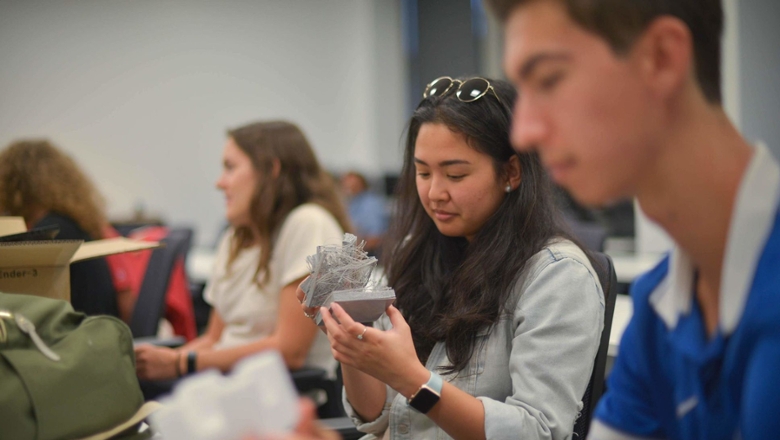Fowler School of Engineering offers a variety of one-credit courses (298s) on a rotating basis so students can explore a range of areas outside of the core computer science and engineering curricula.
Intro to *nix
Students will become proficient with the Unix/Linux operating systems their multitude of command line tools.
C++ Programming
Students will study the C++ programming language, including essential topics for object-oriented programming including inheritance, polymorphism, and memory management.
R Programming
Students learn the R programming language, a modern language that is widely used in statistical computing and data analysis.
Fundamental Electronics
Students learning the basics of electronics and electricity through hands-on design and implementation of basic circuits, including techniques for breadboarding and soldering.
Heroes of Computing
A survey of the scientists and engineers who pioneered the fields of computer science and engineering.
Heroes of Computing: The Living Legends
Despite the ubiquity of computing in contemporary society, computer science and engineering are relatively young fields. This course studies the contributions of pioneers in these areas who are still actively participating in the field.
Heroes of Computing: Minorities in Computer Science
This course allows students to study the amazing contributions of computer scientists from groups that have been traditionally underrepresented in engineering.
Innovation Out of Failure
Though we tend to celebrate the “wins,” most of the great accomplishments in science and engineering are the result of learning to persevere in the face of failure. Students will study how to view failure as the ultimate learning opportunity.
Road to Research
Students will learn what it takes to build an academic research lab, including funding, recruiting, and publications. Students will hear research talks from current faculty members actively recruiting undergraduate research assistants for their labs.
Trusted AI
An overview of the technical aspects of AI that must be addressed in order to give users confidence in the ability of AI-based systems to perform robustly in environments where the cost of failure is catastrophically high.
Salesforce
Students will become familiar with Salesforce, one of the most popular contemporary customer relationship management suites.
Nanotechnology
Students will explore the foundations of nanomaterials, their applications, and microscopies as tools for their characterization.
Assembly Language
Students will become proficient in a contemporary assembly language in order to gain insight into algorithms at the instruction level.
Cloud Computing
Students learn to leverage popular cloud computing frameworks, such as AWS and Azure, in order to understand the power of on-demand computing and storage that can be managed over the Internet and does not require an investment in physical computing infrastructure.
Machine Learning Grand Challenge
Students partner with a corporate sponsor to tackle a real-world machine learning problem and provide solutions that will be immediately implemented in an industry setting.
Unity Multiplayer and Networking
Students will gain hands on experience integrating multiplayer and networking capabilities into Unity-based games.
Consulting Best Practices
Students will be exposed to the process of becoming a technical consultant, including key tools used by consultants for project management to create budgets, statements of work, and understand end-user requirements.
Biomedical Product Design
An overview of engineering design principles for biomedical devices. Specific anatomy applications will be utilized to demonstrate the cross-functional skills used in a risk managed engineering environment to create commercialized products found in surgical and pharmaceutical disciplines.
Data Visualization for Business
Students will learn to use Tableau to generate reports and visualizations in order to effectively communicate patterns in data for the purpose of making informed business decisions.

